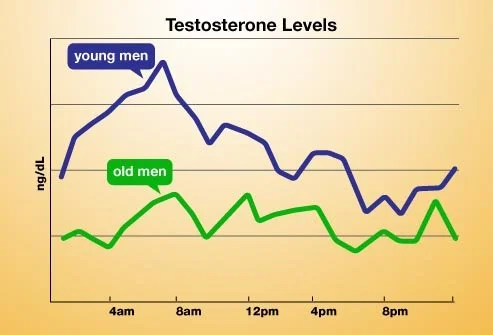Understanding Hormones: A Guide for Your Health
As your physician, I want to help you understand how hormones—specifically estrogen, progesterone, and testosterone—play a vital role in your overall health. Whether you’re a woman dealing with monthly cycles or a man focusing on maintaining vitality, understanding your hormones can empower you to take control of your health.
Hormones and Their Cycles
For Women:
Estrogen and progesterone are the primary female hormones that fluctuate throughout your menstrual cycle. Estrogen peaks in the first half of your cycle, helping to prepare your body for potential pregnancy. Progesterone rises in the second half, stabilizing your uterine lining. These hormonal shifts can affect your mood, energy levels, and even how your body responds to food and exercise.
For Men:
Testosterone is the primary male hormone, and unlike the monthly cycle women experience, men have a daily cycle of testosterone. Levels are typically highest in the morning and gradually decrease throughout the day. Testosterone influences everything from muscle mass and energy levels to mood and libido.
How Lifestyle Affects Your Hormones
Hormones are sensitive to various factors, including stress, sleep, and diet. Here’s how these factors can impact your hormonal balance:
- Stress: Chronic stress can disrupt hormone production, leading to imbalances. For women, this might manifest as irregular periods or heightened PMS symptoms. For men, stress can lower testosterone levels, affecting mood and energy.
- Sleep: Poor sleep quality or insufficient sleep can wreak havoc on your hormones. Women may notice more severe PMS symptoms, weight gain, or mood swings. Men might experience reduced testosterone levels, leading to fatigue and decreased libido.
- Diet: What you eat plays a crucial role in hormone balance. Inflammatory foods, calorie restriction, and lack of healthy fats can all contribute to hormonal imbalances. Women may experience abnormal periods, weight gain, or hair loss, while men might struggle with low energy and decreased muscle mass.
Recognizing Hormonal Imbalances
When your hormones are out of balance, your body will let you know. Common symptoms include:
- Irritability or mood swings
- Weight gain or difficulty losing weight
- Abnormal periods or menstrual irregularities
- Trouble sleeping or insomnia
- Hair loss or unwanted hair growth
Addressing Hormonal Imbalances
The best way to address hormone imbalances, especially for women, is through lifestyle changes:
- Prioritize Sleep: Aim for 8-9 hours of sleep each night, and try to maintain a consistent sleep routine.
- Avoid Inflammatory Foods: Cut back on processed foods, sugars, and unhealthy fats.
- Eat Healthy Fats: Incorporate sources of healthy fats, such as avocados, nuts, and olive oil.
- Avoid Extreme Calorie Restriction: Ensure you’re not restricting more than 500 calories of your estimated daily calorie burn.
- Manage Stress: Practice stress management techniques like meditation, deep breathing, or yoga.
- Exercise Regularly: Engage in routine physical activity to keep your body and mind in balance.
For men, maintaining optimal testosterone levels involves:
- Strength Training: Engage in regular heavy strength training exercises.
- Quality Sleep: Prioritize good quality sleep to support hormone production.
- Stress Management: Keep stress in check through regular exercise, relaxation techniques, and healthy lifestyle choices.
When to Seek Help
If you’re struggling with these symptoms or lifestyle changes, it’s important to talk to your doctor. Hormonal imbalances are often a sign that something isn’t working well in your current routine or lifestyle. While lifestyle changes are the first line of treatment, sometimes symptoms can be so severe that they hinder your ability to make these changes.
In such cases, hormone supplementation might be recommended. There are various options available, including:
- Pellets: Implanted in the buttocks every 3-6 months.
- Injectables - injected every 1-2 weeks.
-Patches - placed 1-2 times a week
-Oral Pills - taken daily
-Creams - applied to skin daily
The right formulation can be picked for you depending on your preference and lifestyle.
Each patient is different, and the right approach depends on your specific needs. If you’re concerned that your hormones may be out of balance, please don’t hesitate to reach out. Together, we can find the best solution to get you back to feeling your best.
Take control of your health today—your hormones are key to your overall well-being.


